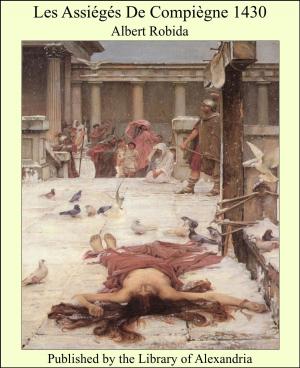| Author: | Arthur Schopenhauer | ISBN: | 9781465503152 |
| Publisher: | Library of Alexandria | Publication: | March 8, 2015 |
| Imprint: | Language: | English |
| Author: | Arthur Schopenhauer |
| ISBN: | 9781465503152 |
| Publisher: | Library of Alexandria |
| Publication: | March 8, 2015 |
| Imprint: | |
| Language: | English |
PRELIMINARY: LOGIC AND DIALECTIC. I. BY the ancients, Logic and Dialectic were used as synonymous terms; although logizesthai, “to think over, to consider, to calculate,” and dialegesthai, “to converse,” are two very different things. The name Dialectic was, as we are informed by Diogenes Laertius, first used by Plato; and in the Phaedrus, Sophist, Republic, bk. vii., and elsewhere, we find that by Dialectic he means the regular employment of the reason, and skill in the practice of it. Aristotle also uses the word in this sense; but, according to Laurentius Valla, he was the first to use Logic too in a similar way.{footnote 1} Dialectic, therefore, seems to be an older word than Logic. Cicero and Quintilian use the words in the same general signification.{footnote 2
PRELIMINARY: LOGIC AND DIALECTIC. I. BY the ancients, Logic and Dialectic were used as synonymous terms; although logizesthai, “to think over, to consider, to calculate,” and dialegesthai, “to converse,” are two very different things. The name Dialectic was, as we are informed by Diogenes Laertius, first used by Plato; and in the Phaedrus, Sophist, Republic, bk. vii., and elsewhere, we find that by Dialectic he means the regular employment of the reason, and skill in the practice of it. Aristotle also uses the word in this sense; but, according to Laurentius Valla, he was the first to use Logic too in a similar way.{footnote 1} Dialectic, therefore, seems to be an older word than Logic. Cicero and Quintilian use the words in the same general signification.{footnote 2















